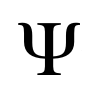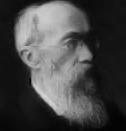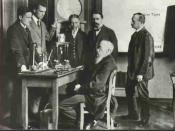Karin Bean, Notes Chapter 1
The word Psychology
Comes form the roots psyche (means mind) and logos (means study of or knowledge)
Psychology
Is the science of behavior and mental processes. Psychologists gather scientific data in order to describe, understand, predict, and control behavior.
Is a science and a profession
Uses the scientific method to study behavior
Psychologists
are professionals who create and apply psychological knowledge
can be scientist, teachers, or apply it in education, business, sports, law, and medicine
The Scientific Method
is a powerful way to observe the natural world and draw valid conclusions
Psychological Research
Begins with observations, questions, and hypotheses. Next, researchers gather evidence, test hypotheses, and publish results. scientific debate and theories suggest new hypotheses which lead to further research
Experiments
Are the best way to identify cause-and-effect relationships in psychology
Critical Thinking
is central to the scientific method, to psychology, and to effective behavior in general
Television Magazines And Other Popular Media
Are rife with inaccurate information.
It is essential to critically evaluate information from popular sources or from any source for that matter
Psychological Researchers
Make every effort to maintain high ethical standards in their work.
Behavior
Is anything you do eating, sleeping, talking, or sneezing? Dreaming, gambling, watching TV, sports,reading.
Overt Behaviors
Are observable actions and responses
Covert behaviors
Are private internal activities, (responses) such as thinking remembering and other mental events hidden from view
EMPIRICISM-Empirical evidence
Facts or Information gained from direct observation or experience
True scientific observation
Is structured to answer questions about the world
Research method A systematic approach to answering scientific questions
Critical Thinking
An ability to evaluate, compare, analyze , critique e , and synthesize information
Critical thinkers analyze the evidence supporting their beliefs, they question assumptions, and they look for alternative conclusions.
Principles for Critical Thinking...



Book notes and Lecture notes
those are notes taken from the Book and taken from lectures.
I typed them up. I used some info from the book as well as my lecture notes and also put my own words in it to make it easy to remember defenitions for an exam.
So this is informational material an overview of definitions so to speak.
it is not an essay....
the rating should be on the info provided and the content.
Thanks for your interest.
1 out of 1 people found this comment useful.